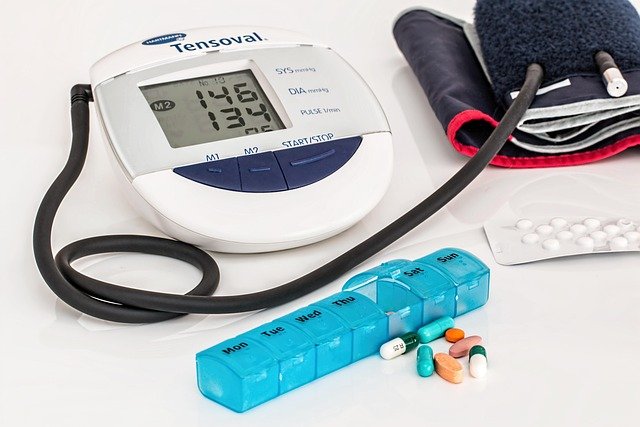Medications That May Contribute to Coronary Heart Disease: What You Should Know
Coronary heart disease (CHD), often called coronary artery disease, remains the leading cause of death in the United States. It develops when the arteries supplying blood and oxygen to the heart muscle become narrowed or blocked, usually because of a buildup of fatty plaques. Most people associate this condition with familiar culprits such as high cholesterol, smoking, obesity, and sedentary habits. Yet a lesser-known contributor is the long-term use of certain prescription and over-the-counter medications. These drugs do not directly “cause” a heart attack overnight, but they can nudge cholesterol, blood pressure, and blood sugar in the wrong direction or place extra strain on the heart. Understanding which medicines carry this potential helps you and your healthcare team lower risk while still receiving the treatment you need.

How Common Medicines Can Worsen Risk Factors
Several widely prescribed medications can exacerbate existing cardiovascular risk factors or create new ones. Nonsteroidal anti-inflammatory drugs (NSAIDs), including ibuprofen and naproxen, can increase blood pressure and promote fluid retention, potentially straining the cardiovascular system. These effects become more pronounced with long-term use or higher doses.
Certain antidepressants, particularly tricyclic antidepressants like amitriptyline, can affect heart rhythm and blood pressure regulation. Additionally, some diabetes medications, while essential for blood sugar control, may contribute to weight gain or fluid retention, indirectly impacting cardiovascular health. Corticosteroids, commonly prescribed for inflammatory conditions, can elevate blood pressure, increase blood sugar levels, and promote sodium retention.
Other Drug Classes With Cardiovascular Concerns
Beyond commonly recognized medications, several other drug classes warrant attention for their potential cardiovascular effects. Antipsychotic medications, both typical and atypical varieties, can contribute to metabolic syndrome, weight gain, and diabetes development. These metabolic changes create a cascade of cardiovascular risk factors that may persist even after medication discontinuation.
Certain cancer treatments, including some chemotherapy agents and targeted therapies, can damage heart muscle or affect cardiac function. Immunosuppressive drugs used in organ transplant recipients may contribute to hypertension and accelerated atherosclerosis. Even some over-the-counter medications, including certain decongestants containing pseudoephedrine, can temporarily increase blood pressure and heart rate.
Special Situations: Hormones and Vasoconstrictors
Hormone-based medications present unique cardiovascular considerations, particularly for women. Estrogen-containing birth control pills and hormone replacement therapy can increase the risk of blood clots, stroke, and heart attack, especially in women who smoke or have other risk factors. The risk varies based on estrogen dose, delivery method, and individual patient factors.
Vasoconstrictor medications, which narrow blood vessels, pose direct cardiovascular risks. Migraine medications called triptans can cause coronary artery spasm in susceptible individuals. Some appetite suppressants and stimulant medications used for attention deficit disorders can increase heart rate and blood pressure. These effects require careful monitoring, particularly in patients with pre-existing cardiovascular conditions.
Protecting Your Heart While Taking Necessary Medications
When medications with potential cardiovascular risks are medically necessary, several strategies can help minimize heart-related complications. Regular cardiovascular monitoring, including blood pressure checks, electrocardiograms, and periodic cardiac assessments, allows for early detection of concerning changes. Healthcare providers may recommend more frequent monitoring intervals for high-risk patients.
Lifestyle modifications become even more crucial when taking medications that may affect cardiovascular health. Maintaining a heart-healthy diet, engaging in regular physical activity as approved by healthcare providers, and avoiding tobacco use can help counteract some medication-related risks. Some patients may benefit from concurrent cardiovascular protective medications, such as low-dose aspirin or statins, when appropriate.
Working With Healthcare Providers for Optimal Outcomes
Effective communication with healthcare providers forms the foundation of safe medication management. Patients should inform all healthcare providers about their complete medication list, including prescription drugs, over-the-counter medications, and supplements. This comprehensive approach helps identify potential drug interactions and cumulative cardiovascular risks.
Regular medication reviews provide opportunities to assess ongoing necessity, adjust dosages, or explore alternative treatments with lower cardiovascular risk profiles. Healthcare providers may recommend cardiac consultations for patients with multiple risk factors or those requiring long-term treatment with medications known to affect cardiovascular health. These collaborative approaches ensure that treatment benefits continue to outweigh potential risks while maintaining optimal cardiac protection.
The key to managing medications with potential cardiovascular effects lies in balancing therapeutic benefits with cardiac safety. Through careful monitoring, lifestyle optimization, and ongoing communication with healthcare providers, patients can receive necessary treatments while minimizing their impact on heart health. This proactive approach to medication management supports both immediate treatment goals and long-term cardiovascular wellness.
This article is for informational purposes only and should not be considered medical advice. Please consult a qualified healthcare professional for personalized guidance and treatment.




